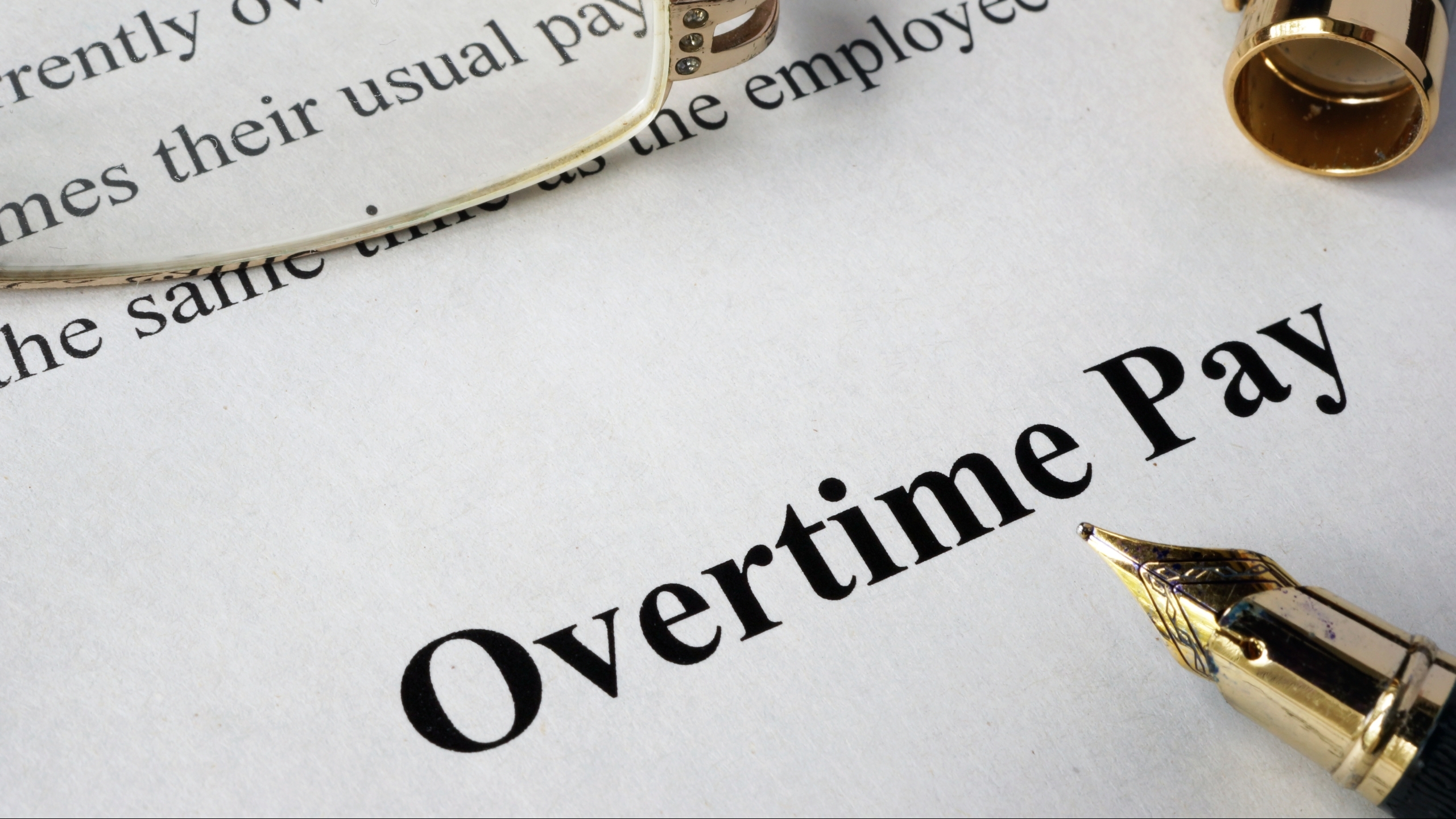With a day to go in the 2023 Legislative Session, there is one fight remaining – over a bill that would repeal the tax on overtime pay.
The brainchild of Rep. Anthony Daniels, D-Huntsville, if passed, the repeal would immediately serve as a 5-percent pay raise for all employees on any overtime they work. It has the support of pretty much every business group, who say it will help them attract and hire more qualified workers in a time of unprecedented shortages, and it has the support of workers unions, who said the repeal would incentivize the state’s hardest workers.
On Wednesday, House leadership held a bipartisan press conference, where Republican and Democratic leaders, including House Speaker Nathaniel Ledbetter, praised the bill. Mayors around the state have praised it. Major corporations are behind it.
“The firefighters don’t quit because the clock strikes 4:00 and it’s time to go home. They quit when the job is done,” Ledbetter said. “This bill allows them to keep more of what they earned in their pockets.
“When Leader Daniels brought this bill and asked me to co-sponsor — I don’t co sponsor many bills — but this was one of them. I felt strongly about it because I know the people that works every day that earn a living for their family. It’s a big deal for them.”
It is a rare coming together of forces that are typically on opposite sides of most issues — all to give Alabama workers a tax break.
But standing on the other side, seemingly the only roadblock to a quick and easy passage, is Sen. Arthur Orr, R-Decatur, and any of his Republican colleagues that he can drag along into this curious fight.
Orr landed the first blow against the bill on Wednesday, attaching an amendment to Daniels’ legislation that would limit the repeal to only the first $2,000 an employee earns. As Democratic Sen. Bobby Singleton pointed out during the meeting, that would only provide a worker with about an hour per week of untaxed overtime pay — a paltry sum in comparison to the bill’s original intent.
“It’s a slap in the face to these workers,” Singleton said. Supporters of the bill are hopeful that the amendment can be removed either on the Senate floor today or in the House, assuming the Senate passes it.
Just why Orr is so opposed to the bill is unclear, although there’s plenty of speculation. His stated reason is that the repeal would take money from the Education Trust Fund, and a fiscal note attached to the bill said it could cost as much as $45 million.
But business leaders said those numbers don’t factor in two things: the number of jobs that the bill could create by allowing short-staffed companies to effectively recruit from neighboring states, and the fact that a tax break for working families almost always goes right back into the economy in the form of sales tax, which also benefits the ETF. Businesses and business groups, such as the Business Council of Alabama and the Hospital Association, supported the bill in its original form and praised the dual benefits to both businesses and employees that it offered.
Daniels pointed out that inflation also has pushed prices higher, costing the average family significantly more money for basic necessities. That has forced many Alabamians to pick up second jobs, work more overtime or find other sources of income.
Helping those workers should be the first priority, said Business Council of Alabama president and CEO Helena Duncan.
“Many of Alabama’s citizens are working longer hours to make up for workforce shortages amidst higher demand for products and services,” Duncan said in a statement to APR. “HB217 offers real solutions for businesses and citizens by directly addressing the workforce deficit and ensuring Alabamians are fully compensated for their overtime hours. HB217 rewards the hardest working citizens and allows for economic growth and greater investments into our communities.”
One of the industries hardest hit by staffing shortages has been healthcare, and particularly Alabama’s hospitals. Danne Howard, the deputy director of the Alabama Hospital Association, said those shortages remain “critical,” and that the state’s hospitals remain desperate for any solution to the problem.
“We’ve never taken a position on the bill but we are always happy to support legislation that so obviously benefits the thousands of hospital workers and the hospitals themselves,” said Howard. “We are still experiencing terrible shortages all throughout the state. This could help fill a lot of gaps by encouraging overtime – by rewarding employees more – and also used as a recruitment tool for hospitals.”
Austal USA, one of the state’s largest employers, also could use the tax break as a recruitment tool. And it needs a tool in a bad way.
Over the last several years, as Alabama’s employment rate has dropped steadily, companies like Austal have struggled to compete with similar industries in neighboring states. Qualified employees are in high demand, and a 5-percent break on all overtime pay could be a huge carrot to lure in those workers, according to Rep. Napoleon Bracy, who also works in human resources at Austal.
“This bill would give Austal USA a tremendous competitive advantage when recruiting employees along the Gulf coast,” Bracy said. “We’re in the midst of a labor shortage nationally and at the same time, Austal USA will be expanding our workforce significantly over the next few years. Companies in Mississippi, Florida and Georgia can’t offer tax-free overtime to potential employees. We can with this bill.”
And Bracy pointed out that by luring those employees to Alabama, allowing Austal to expand its workforce potentially by thousands of employees over the next few years, the bill would effectively pay for itself.
“This bill will bring more employees to Alabama, incentivize the great workforce we currently have and offset any of the tax losses from the bill,” Bracy said. “There’s no downside here. Especially when you consider how much it helps the working people of Alabama.”
The dual benefits of the bill – paying employees more while also serving as a recruitment tool for employers – was a big selling point to both employee groups and business associations.
“When (Daniels) first told me about his idea for this bill, I told him that there’s no way something that makes so much sense could ever get passed,” said Bren Riley, president of Alabama AFL-CIO. “We just don’t pass legislation like this in this state. It’s too good. It’s a benefit for the true working people of this state. I mean, you don’t get more ‘Alabama worker’ than a guy who’s putting in overtime.”
Riley said the bill was also unique for another reason – it’s original. It was crafted by an Alabama lawmaker – Daniels – and not by a lobbyist or group. And it wasn’t tried first in eight other red states.
“When it was first introduced, the most often asked question was, ‘Has anyone else tried this?’” Riley said. “For the first time in a long time, we have an opportunity to do something that benefits average Alabamians and have other states copy us on something good. When’s the last time you could say that?”





















































